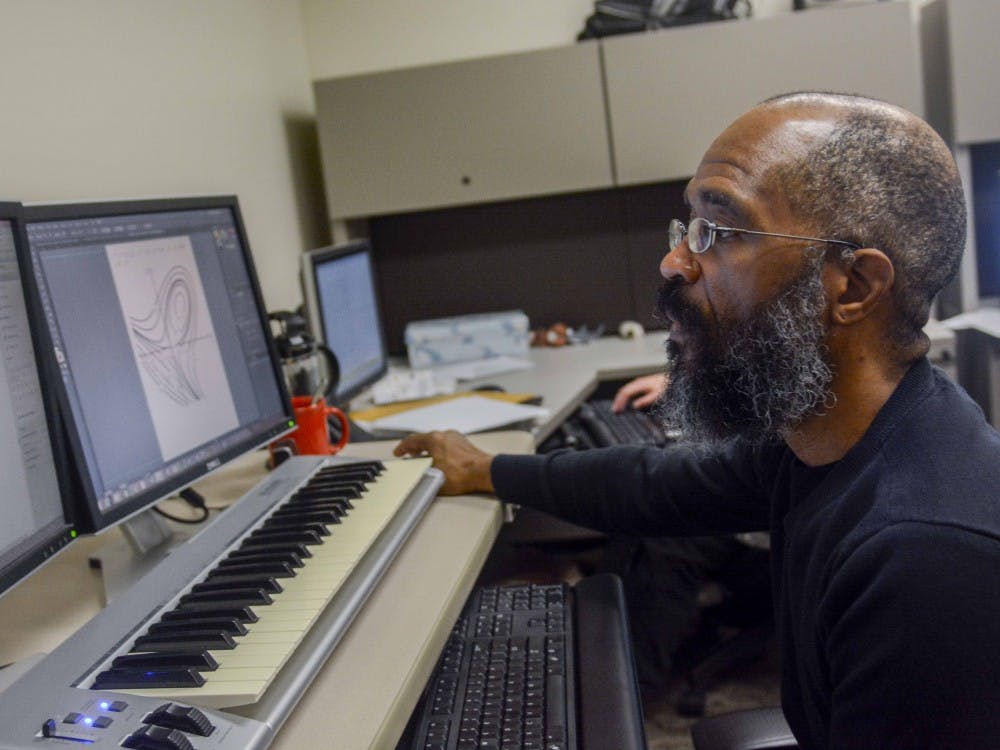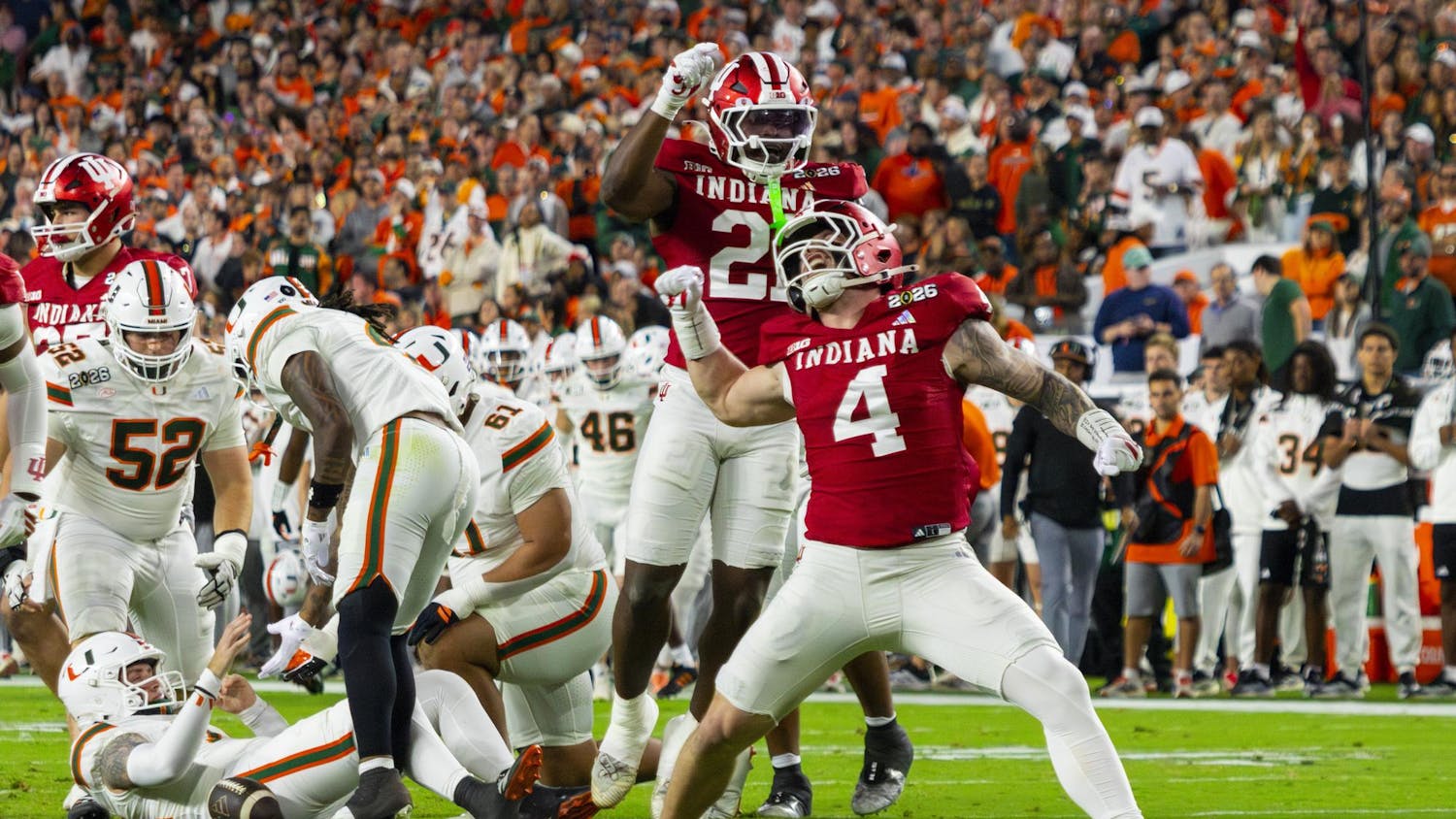A red mug full of mint tea sits to the right of two computer monitors on Chris Goodbeer’s desk.
On the left screen, curving lines and numbers from a scan of a calculus textbook are pulled up, while on the right screen, Goodbeer recreates the image with Braille.
Goodbeer is a literature and music transcriber in the UITS Assistive Technology and Accessibility Center office. He transcribes textbooks and music scores into Braille for visually impaired students.
“It’s nice to feel like I’m making a difference for people, leveling the playing field,” he said.
Students of varying degrees of disability contact the ATAC through the Disability Service for Students, Goodbeer said. The ATAC then assesses their needs and works with them to provide technology. These technologies may include special keyboards for people with physical injuries like carpal tunnel syndrome or programs that read text aloud for students with dyslexia.
“Our job is taking mostly instructional materials and converting them into a format that works better for clients,” manager Brian Richwine said.
Goodbeer grew up with a passion for music and earned his bachelor’s degree in vocal performance from the University of Montevallo in 1988 in Alabama. He then earned his master’s degrees in vocal performance and early music voice from James Madison University in 2003 and IU in 2010, respectively. In 2011, he also earned his master’s degree in library science from IU.
Before Goodbeer joined the ATAC team, the office worked with someone outside the University to transcribe sheet music into Braille for a music student. However, this became costly, and it was difficult for the transcriber to communicate and understand the student’s needs, Richwine said. The office began to look for someone in house who would be able to transcribe the sheet music.
“Chris Goodbeer answered the call,” said Mary Stores, senior alternate media specialist.
Goodbeer reports to both Stores and Richwine with progress reports and updates on his workload. When he is not transcribing music, Goodbeer helps out with other projects, including transcribing calculus textbooks and creating tactile graphics.
Stores sits next to Goodbeer in the ATAC office in the West Tower of Wells Library. She and Goodbeer chat and banter back and forth about his choice of tea and coffee while they work.
“I tease him a little bit, but I actually just mean it affectionately,” she said.
Stores was a transcriber before Goodbeer joined the ATAC team, and she said the pair now splits a lot of the work at the office.
“I love music, and I would say that music is my life, but I don’t sing, I don’t compose it,” Stores said. “But Chris knows music and sings opera.”
Richwine said Goodbeer’s knowledge of music and library science helps him in his career as a Braille transcriber.
“It takes a lot of pieces all working together: technical work with music score, Braille knowledge and the ability to work with people,” Richwine said.
Goodbeer has a certificate and associate certificate in literary Braille transcribing and music Braille transcribing from the Library of Congress.
He uses both to transcribe texts and music for students through various programs, like Duxbury, a Braille translation software, and Adobe Illustrator.
He said he enjoys literary and music Braille, and being able to switch from one to the other is a nice change of pace for him.
“I enjoy puzzle solving, which a lot of transcribing can be like,” Goodbeer said.
Goodbeer and the ATAC work with students from all IU campuses, and Goodbeer said he communicates regularly via email with students to make sure what he sends them fulfills their needs.
Stores, Goodbeer and Richwine all said they empathize with students and want to make the playing field as equal as possible for everyone.
In particular, Stores explained in college she had to scan her own textbooks and spent her study time making them accessible.
As a result, she said she didn’t do as well in classes. She said the best part of her job in the ATAC is transcribing texts for students so they can actually study and do well in classes.
“Some people might think you’re giving people with disabilities extra benefits, but really you’re not,” she said. “You’re helping them so that when a professor assigns a book, they can actually go to their accessible electronic alternative and read it the same as anybody else.”
Goodbeer expressed a similar sentiment.
He said he believes in providing access and equal opportunities to all students.
“One of my passions is performing and it feels wonderful to help facilitate that for others,” he said.






